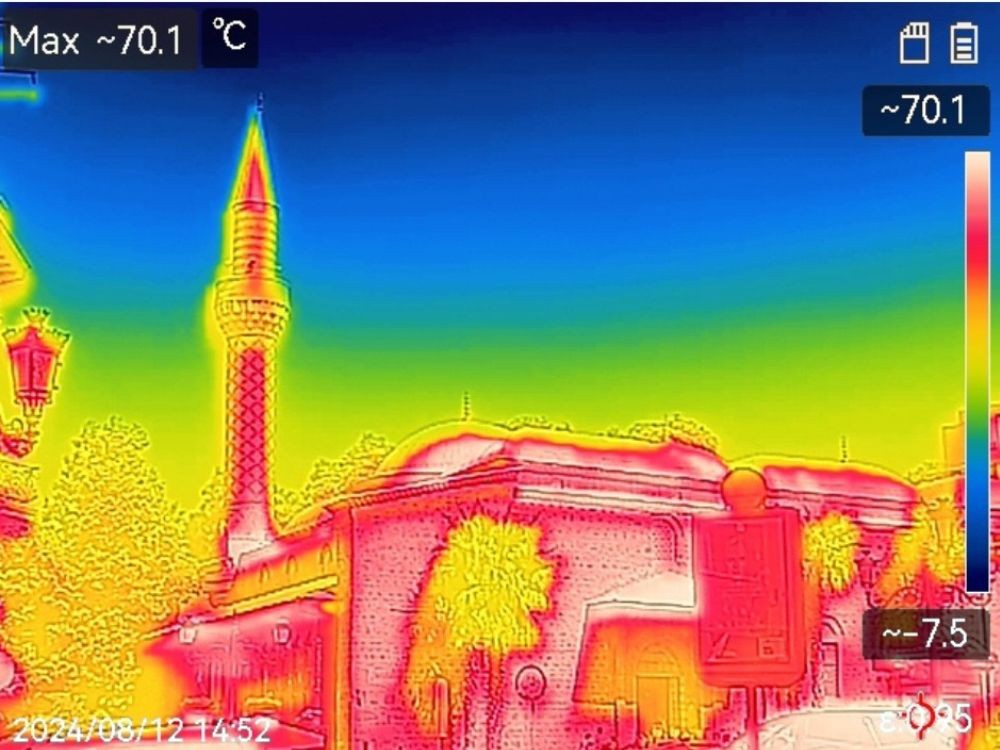During the hottest days of summer, members of Greenpeace travel around the country to show how hot it really is in the urban environment. With the help of thermal cameras, they detect the temperature around the buildings, which in places like Plovdiv reaches up to 70°C. The experiment wants to draw attention to the problem of lack of green areas in cities.

The main goal of these studies, according to director of Greenpeace Bulgaria, Meglena Antonova, is to show that cities are getting hotter because of the urban heat island effect. This extra heat is caused by exhaust fumes, dark asphalt and building materials and lack of vegetation. Climate change is already exacerbating the problem.
According to a recent study by the Barcelona Institute of Global Health, trees can reduce the death rate during heat waves in cities by one third.
Photos: Greenpeace-Bulgaria
Shortly after the opening of the motorcycle season in Sofia at the end of March, Bulgaria's capital city will host the country's largest motorcycle exhibition . The event takes place from today until April 14 at Arena 8888 Sofia . Between 700 and..
Students and teachers from two educational companies of the National Commerce and Banking High School won awards at the global business competition Youth Business Summit 2025 – US , organized by the US Headquarters of Educational Enterprises, the..
Is it possible that "Virtues and Religions" will be included in the curriculum and will be mandatory from 2026? This is a debate that has seen different points of view expressed in the last few weeks. "The introduction of mandatory..
Residents and visitors to Sofia will have the opportunity to learn more about Bulgarian scientists working in Antarctica and their important role in the..
The prices of Easter goods are rising The Easter meal in the Balkan countries will be more expensive this year, BTA reports...

+359 2 9336 661
